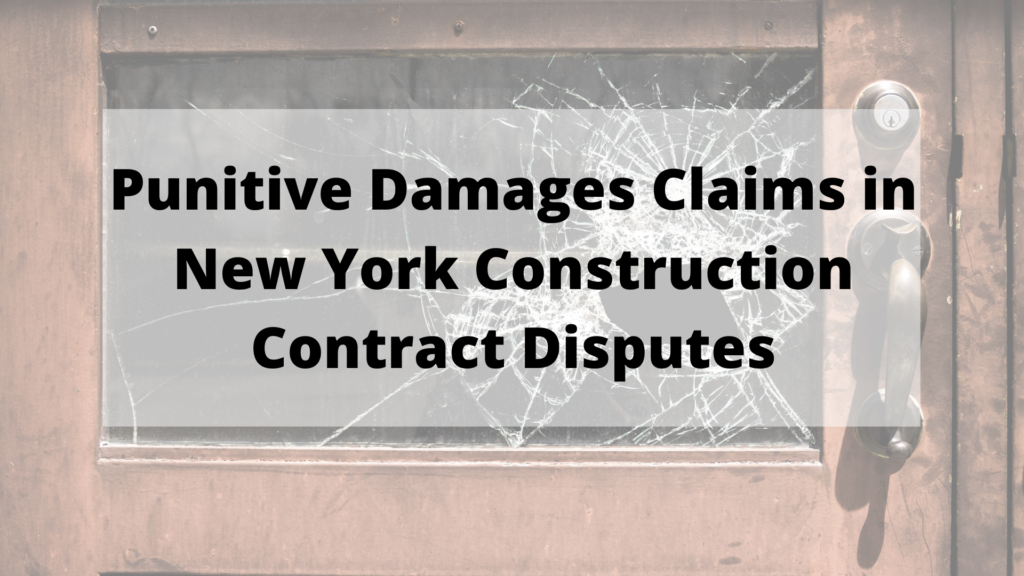
One topic that came up in my practice recently was a contractor’s potential exposure to liability for punitive damages under New York law. As the name suggests, punitive damages are awarded above and beyond their contract or property damages, ‘where the wrong done was aggravated by circumstances of violence, oppression, malice, fraud, … on the part of the defendant, and are intended to address the plaintiff’s mental anguish or other aggravation, to punish the defendant for its behavior.’ Black’s Law Dictionary 390 (6th Ed. 1991).
Continue reading “Punitive Damages Claims in New York Construction Contract Disputes”
![]()


